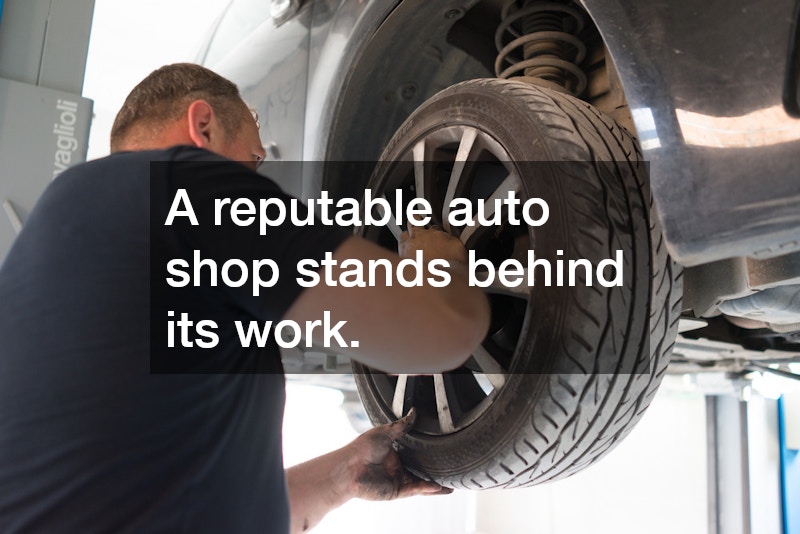Finding a reliable auto shop can feel like navigating a maze, especially when your vehicle is on the fritz and you’re pressed for time. Whether it’s for routine maintenance or a more serious repair, having a dependable place to take your car makes all the difference. With so many auto shops out there, it’s easy to feel overwhelmed—but knowing what to look for can help you identify professionals who are both trustworthy and experienced.
1. Start With Word of Mouth and Online Reviews
One of the best ways to begin your search is by asking friends, family, or coworkers about their experiences. People tend to be honest when it comes to car repairs, especially if they’ve had either a great experience or a really bad one.
Personal recommendations often come with helpful details that can’t be found in advertisements.
Once you’ve gathered a few names, take your research online. Check Google reviews, Yelp, or even Facebook pages. Look for patterns in the reviews—recurring themes around honesty, timeliness, and pricing are usually good indicators of the shop’s reputation. Be wary of shops with a mix of glowing five-star reviews and scathing one-star complaints. A consistent four-star rating with thoughtful feedback might be more trustworthy than a perfect five-star rating with vague comments.
2. Check for Certifications and Affiliations
Trustworthy auto shops typically hold certifications from national or regional automotive organizations. Look for certifications such as ASE (Automotive Service Excellence), which shows that the technicians are trained and tested in automotive repair. Membership in associations like AAA or the Automotive Service Association (ASA) can also signal a commitment to professionalism and ethics.
You should also check if the shop is licensed and insured, which is often required by local regulations but not always enforced. A legitimate shop should be upfront about their credentials and display them in the waiting area or online.
3. Gauge Their Communication and Transparency
How a shop communicates with you says a lot about how they’ll handle your car. Are they patient when answering questions? Do they take the time to explain what the issue is and what the proposed solution involves? Trustworthy shops will be upfront about diagnostics, labor costs, and timelines. They won’t pressure you into unnecessary repairs or gloss over important details.
4. Ask About Warranties and Guarantees
A reputable auto shop stands behind its work. Ask about warranties on both parts and labor. If a shop offers a solid guarantee—say, 12 months or 12,000 miles on a repair—it shows they’re confident in their work and committed to customer satisfaction. If a shop hesitates to provide a warranty or offers only a vague promise, that’s a red flag. You want to work with people who are willing to make things right if something goes wrong.
5. Evaluate the Shop’s Cleanliness and Organization
While a mechanic’s garage isn’t expected to be spotless, a well-kept and organized shop is usually a good sign of professionalism. A clean waiting area, labeled tools, and vehicles being handled with care reflect the pride a shop takes in its business. It also signals that they’re likely to be meticulous with your car.
6. Test Them With a Small Job First
If you’re unsure about a shop and don’t want to dive into major repairs right away, try them out with a small job—like an oil change, tire rotation, or brake inspection. This gives you a low-risk opportunity to assess how they handle your car, how they communicate, and whether the final bill matches the estimate.
7. Watch for Fair and Clear Pricing
Experienced auto shops are usually transparent about their pricing structure. Before any work begins, they should provide a written estimate that outlines labor costs, parts, and any additional fees. While it’s normal for the final bill to vary slightly if unexpected issues arise, you should never be blindsided by hidden charges.
Final Thoughts
Your car is a major investment, and finding the right people to care for it is crucial to keeping it running smoothly and safely. By doing your homework, trusting your instincts, and taking a step-by-step approach, you can identify auto shops that combine technical expertise with honest service. The extra time you spend vetting your options can save you money, stress, and even prevent breakdowns in the long run. In a crowded market, it’s not just about fixing your car—it’s about finding a partner who’ll help you maintain it for the road ahead.
.

